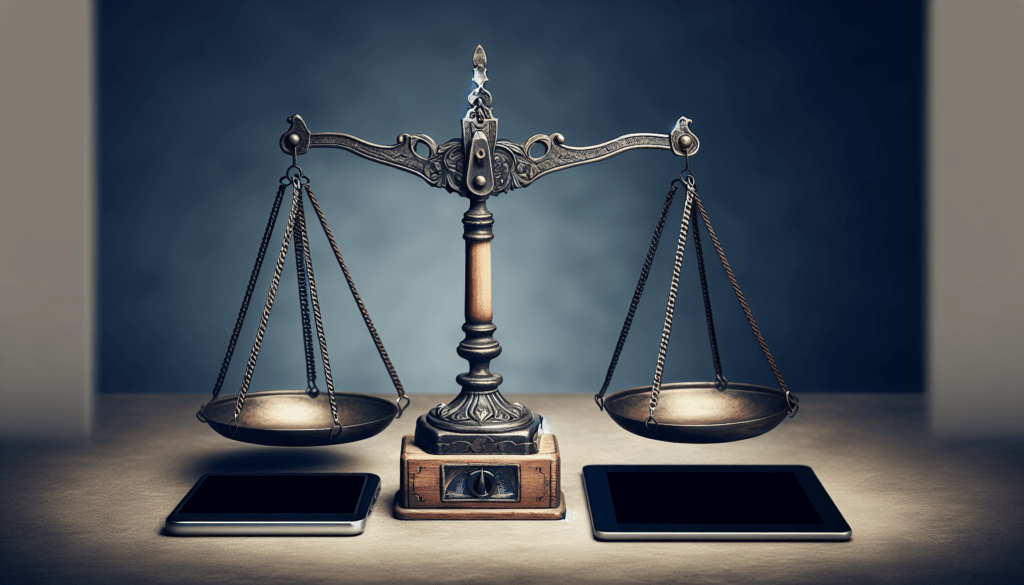What do you think about the role of professional liability insurance in today’s ever-evolving business landscape?
The Evolution of Professional Liability Insurance
Historically, the need for professional liability insurance arose in the wake of increased litigation against professionals, particularly in sectors like healthcare and legal services. Over time, the scope of coverage expanded beyond traditional boundaries, incorporating unique risks specific to various industries—from technology to construction—reflecting the growing complexity of modern business practices.
Another misconception is that general liability insurance is enough to cover all potential risks. While it does provide essential coverage against bodily harm and property damage, it does not protect against claims of negligence or professional mistakes. Understanding these distinctions can save your business from significant financial repercussions down the line.
How Professional Liability Insurance Differs from General Liability
Professional liability insurance and general liability insurance serve different purposes, and knowing these differences will help you select the right coverage for your needs.
| Feature | Professional Liability Insurance | General Liability Insurance |
|---|---|---|
| Coverage Type | Errors and omissions, negligence in professional services | Bodily injury and property damage |
| Claims Made | Covers claims made during the policy period | Covers incidents occurring during the policy period regardless of when the claim is made |
| Applicable Professions | Required for professionals like physicians, accountants, and consultants | Generally used by businesses in any field |
This table simplifies the key differences, allowing you to see which type of insurance may suit your profession best.
The Role of Professional Liability in Business Continuity
Having professional liability insurance can serve as a cornerstone of business continuity plans. It protects not only your finances but also your reputation. When clients trust that you are covered in the event of unforeseen circumstances, it builds greater confidence in your services.
This insurance acts as a safety net during various events—be it a minor error or a more severe claim, such as a lawsuit. You can focus on your work rather than worrying excessively about possible liability risks, allowing your business to operate more smoothly.
How to Evaluate Your Need for Professional Liability Coverage
Assessing your need for professional liability coverage requires a thoughtful approach. Start by considering the nature of your profession and the specific risks associated with it.
Identify Your Risks
- Type of Work: What services do you provide, and what kind of mistakes could occur? Understanding the intricacies of your industry is vital in identifying potential liabilities.
- Client Relationship: Are you working directly with clients? If personal interactions are involved, this often elevates the risk of claims.
Analyze Market Trends
Keeping an eye on trends within your industry can also inform your evaluation. If you notice an increasing number of lawsuits or claims in your field, this could indicate a heightened necessity for liability coverage.
Consult with an Insurance Professional
Lastly, consulting with an insurance agent who specializes in professional liability can provide you with tailored recommendations based on your unique circumstances. They can help you navigate the complexities of policies and choose what best suits your professional landscape.
Tailoring Liability Insurance for the Tech Industry
As a technology professional, the landscape of liability insurance is uniquely tailored to address specific risks. Rapid advancements in technology demand equally agile and flexible insurance solutions. This means that tech entrepreneurs may face unique challenges that require specialized coverage.
Key Considerations for Tech Professionals
- Data Breaches: With increased connectivity and reliance on technology, data breaches pose a significant risk that can lead to costly lawsuits.
- Software Errors: For software developers, coding mistakes can lead to client losses or significant service interruptions.
By recognizing these risks, you can craft a policy that specifically addresses the challenges in the tech industry, ensuring comprehensive coverage.
Professional Liability Needs for Healthcare Providers
Healthcare providers, ranging from doctors to therapists, encounter unique liability issues that necessitate robust professional liability insurance. The stakes are often higher in this domain due to the potential consequences of negligence.
Understanding Malpractice Insurance
Malpractice claims can occur for various reasons, such as misdiagnosis or improper treatment. This highlights the need for healthcare professionals to carry comprehensive malpractice insurance to protect against the financial repercussions of such claims.
Regulatory Compliance
Insurance Challenges in the Construction Sector
The construction industry is prone to specific liability challenges, necessitating tailored insurance solutions. Here’s what you need to consider to effectively manage risks associated with construction projects.
Understanding Construction Liability Risks
- Worksite Injuries: Accidents can occur, leading to worker injuries, which can result in serious lawsuits.
- Contractor Errors: Mistakes in project execution can lead to costly repercussions, including repairs or mitigations.
Comprehensive Coverage Approach
Opting for specialized liability insurance for contractors can provide enhanced coverage options, ensuring you are protected from various claims associated with construction activities.
Legal Professionals: Unique Insurance Considerations
For legal professionals, the stakes are high when it comes to malpractice claims. Given the nature of law, simplified or generic liability coverage simply won’t suffice. It’s essential to delve into the specific areas that may require additional focus.
Legal professionals should opt for policies that cover the multitude of scenarios they may encounter, from negligence to wrongful accusations of misconduct. Adequate coverage can provide peace of mind in an increasingly litigious environment.
Understanding Legal Ethics
Being aware of the ethical implications of your practice can minimize liability risks. Furthermore, ensuring that your policy aligns with your ethical obligations can further enhance your protection.

Protecting Your Practice
Regulatory Compliance
Similar to the healthcare sector, financial services are highly regulated. Ensuring you possess suitable coverage to comply with fiduciary standards can offer peace of mind amid increasing scrutiny.
The Impact of AI on Professional Liability Policies
Artificial Intelligence (AI) continues to reshape industries, including the realm of professional liability insurance. With AI technology rapidly evolving, it’s essential to understand its impact on your insurance needs.
Understanding New Risks
Crafting Policies Aligned with Innovation
As the industry continues to integrate more AI tools, insurance companies are reevaluating policy language to address these new risks. Keeping in touch with your insurer can ensure your coverage meets the unique demands of a tech-driven landscape.
Cybersecurity Threats and Their Influence on Insurance Needs
In an increasingly digital world, Cybersecurity poses significant threats that can impact a wide range of businesses. It’s crucial to understand the implications of these threats on your professional liability needs.
Rising Liability Risks
Additional Cyber Insurance Options
As you explore your coverage options, remember that specialized cyber liability insurance can provide additional protections tailored to address risks posed by cybersecurity threats.
How Climate Change Affects Liability Risk Assessments
Climate change is progressively impacting the insurance landscape, influencing how you should assess liability risks within your industry.
Understanding Environmental Risks
As extreme weather events become more frequent, businesses must account for associated risks. This includes property damage and interruptions that can impact your professional responsibilities.
Adapting Coverage to Mitigate Risks
It’s essential to work closely with your insurer to understand how climate change affects your potential liabilities and adjust your coverage accordingly to provide better safeguards against evolving threats.
Social Engineering: A Growing Concern for Insurers
Social engineering attacks present a unique challenge for many businesses, demonstrating the human factor behind many cyber threats.
Understanding Social Engineering Risks
These scams often target individuals within an organization to gain access to sensitive information, leading to substantial losses. Raising awareness and minimizing exposure to such attacks can help protect your business.
Enhancing Coverage for Increased Protection
Navigating the Hard Market in Professional Liability
The insurance market can experience “hard” and “soft” phases, affecting your ability to secure the right coverage at an appropriate cost.
Recognizing Hard Market Conditions
During hard market conditions, insurance premiums tend to rise, and coverage options may become limited. Understanding these trends can help you navigate the complexities of securing the needed professional liability insurance.
Strategic Plan of Action
Collaborating with an experienced insurance broker can offer insights that strategically position your business for obtaining coverage, even in challenging market conditions.

Lessons from High-Profile Professional Liability Lawsuits
High-profile lawsuits can provide valuable lessons for professionals in numerous industries. Analyzing these cases can highlight common pitfalls and strategies to avoid similar issues in your professional practice.
Understanding Common Mistakes
From inadequate documentation to failure in providing timely communication with clients, understanding key factors that lead to these lawsuits can help you bolster your own risk management strategies.
Implementing Best Practices
Incorporating documented best practices within your organization can assist in minimizing liability exposure. Ongoing education regarding potential risks will also empower employees to contribute to a culture of risk awareness.
How Large Corporations Manage Their Liability Risks
Large corporations have dedicated resources to manage liability risks and often engage in comprehensive risk management practices.
Evaluating Comprehensive Risk Management Plans
As a small business or individual professional, examining the strategies utilized by large corporations can offer valuable insights. Understanding how they assess potential liabilities can inform your approach to risk management.
Learning From Corporate Best Practices
Adopting similar layers of protection, tailored to your scale and risk profile, allows you to create a well-rounded approach to liability management.
Case Study: Successful Claims Mitigation Strategies
Analyzing case studies of successful claims mitigation strategies can refine your own practices.
Understanding Successful Mitigation
Companies that proactively addressed potential liabilities often saved substantial resources in scandal avoidance or settlement costs. Implementing strategies that have proven effective in these cases can bolster your professional resilience.
Creating an Effective Incident Response Plan
Ensure that your approach to risk mitigation includes a well-crafted incident response plan that outlines actionable steps to manage claims should they arise.
The Financial Impact of Negligence Claims on Small Businesses
Negligence claims can impose severe financial burdens on small businesses. Understanding the repercussions of such claims is crucial for effective risk management.
Assessing Financial Losses
Analyzing the potential losses associated with a negligence claim can offer insights into the financial safety net that adequate insurance provides. Unplanned financial setbacks can jeopardize small businesses, making proper coverage essential.
Developing Financial Strategies
Navigating these risks through insurance coverage will empower you to operate more confidently, knowing that you possess measures in place to address potential claims.
Learning from Real Cases
Identifying specific examples of claims can illustrate the various dimensions of professional liability, demonstrating which preventative measures could have been taken to avert issues.
Implementing Preventative Measures
Utilizing insights gained from these examples can help guide your practice towards preventative measures, ensuring you’re equipped to manage risks proactively.
A Step-by-Step Guide to Filing a Professional Liability Claim
Should you find yourself in a position where you need to file a claim, understanding the process is essential.
Step-by-Step Breakdown
Here’s how you can approach filing a claim:
- Review Your Policy: Understand your coverage specifics, including what is required to file a claim.
- Document Your Case: Collect all relevant documentation, including emails, notes, and communications.
- Notify Your Insurer: Inform your insurance company promptly about the claim to initiate the process.
- Work with Legal Counsel: Consider legal representation to navigate the claim effectively.
- Follow Up Regularly: Maintain open lines of communication with your insurer for updates on the process.
Knowing What to Expect
Filing a claim can be daunting, so being prepared for each of these steps can alleviate some stress and confusion.

Evaluating Coverage Options
Do thorough research on the various options available. Look specifically at industry-specific policies to ensure they address your unique needs.
Customize Your Policy
Consider tailoring your policy’s coverage limits and deductibles to align more closely with your risk profile and financial capabilities.
Grasping the nuances of policy limits and deductibles can have substantial implications on your financial well-being, particularly when dealing with claims.
Determining Appropriate Coverage Limits
Your coverage limits determine the maximum amount your insurer will pay for a claim. Consider the potential risks you face to set limits that appropriately safeguard your interests.
Selecting Deductibles
A higher deductible may reduce your premium but could leave you exposed during a claim. Evaluating your financial situation can guide you in selecting a deductible that balances affordability with coverage.
The Impact of Prior Claims on Future Insurability
One of the most critical factors affecting your ability to secure coverage is your history of prior claims.
Understanding the Importance of Claims History
Insurance companies often examine your claims history when determining your rates and eligibility for coverage. Understanding this dynamic can help you take proactive measures to improve your standing.
Managing Your Risk Profile
Ensuring that your approach to risk management is robust can demonstrate to insurers that you are taking steps to mitigate potential liabilities, potentially leading to more favorable terms.
When to Review and Update Your Liability Coverage
Regularly reviewing and updating your liability coverage is a crucial responsibility.
Scheduled Evaluations
Consider setting a schedule to assess your coverage—at least annually or after any significant changes in your business operations.
Adjusting for Changes
Whenever you expand your services, enter new markets, or hire employees, revisiting your policy ensures you maintain suitable protection against emerging risks.
The Role of Brokers and Agents in the Insurance Process
Working with an experienced insurance broker or agent can significantly ease the process of securing the right coverage.
Utilizing Their Expertise
These professionals can guide you in evaluating your specific needs, helping you choose the best policies for your unique circumstances while negotiating favorable terms on your behalf.
Building a Partnership
Establishing a working relationship with an insurance agent can ensure you have ongoing support as your business evolves.
Tips for Communicating with Your Insurer
Effective communication with your insurer is key to a successful insurance experience.
Clear and Open Dialogue
Maintain open lines of communication, making sure to express any changes in your business that may affect your coverage. This proactive approach will help avoid gaps in coverage.
Understanding Policy Language
It’s essential to understand both the limitations and benefits of your policy fully. Ask questions and seek clarity from your insurer if there are any aspects you don’t grasp.
Leveraging Insurer Resources
Many insurance companies offer resources and educational materials tailored to inform clients about available coverage and changes within the industry. Be sure to leverage these to stay informed.

Professional Liability for Accountants: Beyond the Numbers
Accountants face a multitude of risks that necessitate tailored professional liability coverage.
Specific Risks
- Audit Errors: Incorrect financial statements can lead to significant repercussions for clients, exposing you to potential claims.
- Regulatory Compliance
Comprehensive Coverage Plans
Adopting comprehensive plans will ensure you are protected from the multifaceted risks associated with accounting practices.
Architects and Engineers: Building a Strong Insurance Foundation
For architects and engineers, professional liability insurance is a fundamental requirement to thrive in the face of potential challenges.
Understanding Liability Risks
From design errors to project delays, numerous factors can contribute to liability risks in these professions. Understanding specifics can bolster your overall risk management strategy, keeping you protected.
Customized Policy Needs
Working with specialists who understand the intricacies of architectural and engineering practices will ensure that your policy effectively addresses the various risks associated with your work.
Attorneys at Law: Protecting Your Practice from Malpractice Claims
Lawyers must safeguard their practices against potential malpractice claims, which can arise from inadequate legal counsel or representation.
Key Areas of Concern
- Misrepresentation: Failing to appropriately communicate with clients can lead to claims of negligence.
- Fiduciary Responsibility: Protecting client interests is paramount, and any failure in this area can lead to significant liability.
Robust Malpractice Insurance
Investing in robust malpractice insurance enables attorneys to focus on helping clients securely, knowing they are protected.
Consultants provide valuable guidance to businesses, but they must also be aware of potential liability risks associated with their advice.
The Risk of Liability
Poor advice or miscommunication can directly impact client operations, leading to dissatisfaction and potential claims.
Dentists: Navigating the Complexities of Liability Insurance
Dentists face specific liability risks that necessitate specialized coverage options.
Understanding Dental Malpractice Risks
Claims can arise from various aspects, including failure to diagnose, improper treatment, or even staff negligence.
Comprehensive Coverage Solutions
Navigating the complexities of dentistry calls for comprehensive coverage options that adequately protect dental practices against liability.
Financial Advisors: Shielding Your Clients’ Investments
Financial advisors are often charged with safeguarding clients’ investments, which can expose them to liability if they fail to meet their professional standards.
Understanding Potential Risks
The stakes are high when it comes to investment performance. Misleading advice or failure in fiduciary responsibilities can lead to significant claims.
Protecting Client Interests
Investing in sound professional liability insurance can serve to protect both your practice and clients, enabling you to operate with confidence.

Healthcare Professionals: The Importance of Malpractice Insurance
For healthcare professionals, malpractice insurance is an essential safeguard in managing liability risks.
Identifying Common Claims
Misdiagnosis, surgical errors, and treatment complications are just a few areas where claims may arise. Understanding these risks helps inform tailored coverage strategies.
Ensuring Proper Coverage
Healthcare professionals should invest in malpractice insurance that sufficiently covers these multifaceted risks, providing security and peace of mind while providing patient care.
IT Professionals: Mitigating Cyber Risks and Data Breaches
The IT sector is riddled with unique liabilities, particularly regarding data security.
Understanding Technological Risks
Cybersecurity breaches can result in significant client losses, which can lead to damaging claims against IT professionals.
Cyber Liability Strategies
Insurance agents themselves are not immune to liability claims, making it crucial to have robust professional liability coverage.
Understanding Agent-Specific Risks
Errors in underwriting or failure to convey pertinent information can lead to negligence claims against insurance agents.
Real Estate Agents: Avoiding Liability in Property Transactions
Real estate agents face a unique set of liability challenges that require diligent management.
Risks in Property Transactions
Misrepresentations or failure to disclose property issues can lead to significant claims against agents involved in property transactions.
Risk Management Strategies
Arming yourself with professional liability insurance designed for real estate agents can minimize risks and build client trust.
Tech Startups: Tailoring Coverage for Emerging Risks
For tech startups, emerging liability risks require specialized coverage that aligns with rapidly evolving landscapes.
Identifying Unique Risks
Specialized Insurance Solutions
Consulting with an insurance professional who understands the startup environment can help tailor policies that address emerging liabilities.
Nonprofits: Addressing Unique Liability Concerns
Nonprofits operate in a distinctive environment, often facing unique liability issues that require special consideration.
Understanding Nonprofit Risks
From volunteer-related injuries to liabilities inherent in service provision, nonprofits can encounter various challenges impacting their operations.
Tailored Coverage Solutions
Obtaining tailored coverage solutions helps nonprofits efficiently manage risks while ensuring their mission continues without interruption.
Media and Entertainment: Managing Risks in a Creative Field
The creative industry presents unique risks that professionals must navigate to protect their work and reputation.
Understanding Intellectual Property Risks
Copyright infringement claims can pose significant risks for those working in media and entertainment.
Comprehensive Liability Insurance
Securing comprehensive liability coverage can help protect creative professionals from potential lawsuits that arise in the course of their endeavors.
Hospitality Industry: Protecting Your Guests and Reputation
For the hospitality industry, liability risks are omnipresent, making insurance coverage essential for effective risk management.
Understanding Potential Risks
Incidents involving guests can lead to significant liability claims. From slip-and-fall accidents to service inadequacies, managing these risks is crucial.
Risk Management Strategies
Investing in comprehensive liability insurance allows hospitality professionals to protect their businesses while ensuring guest safety.
Educational Institutions: Liability Concerns in Academia
Schools and educational institutions face unique liability challenges, necessitating appropriate coverage.
Understanding Risks in Education
Liability claims can involve student injuries or issues arising from the provision of educational services.
Comprehensive Coverage Solutions
Education professionals should ensure their policies effectively address their specific risks, protecting both students and the institution.
The Rise of Cyber Liability: Protecting Against Digital Threats
As digital threats become more prominent, cyber liability insurance is gaining importance across all sectors.
Identifying Digital Risks
Cyberattacks can compromise sensitive information, leading to data breaches and significant liability claims.
Tailored Cyber Coverage Options
Establishing tailored cyber liability coverage as part of your insurance plan can fortify your business against digital threats.
The Future of Professional Liability Insurance: Predictions and Trends
The professional liability insurance industry is continually evolving in response to emerging trends and technological developments.
Keeping Pace with Industry Changes
Understanding and adapting to new risks will be crucial for professionals across all fields.
Ensuring Relevant Coverage
As you look toward the future, staying in tune with your specific industry trends will help you ensure you have relevant and updated coverage.
Creating a Culture of Risk Awareness: Employee Training and Education
Fostering a culture of risk awareness within your organization significantly impacts your liability exposure.
Developing Training Programs
Implement regular training sessions that address specific risks relevant to your industry. Investing in employee education can go a long way toward minimizing exposure.
Encouraging Open Dialogue
Encourage employees to communicate about potential risks and concerns, promoting an environment where issues can be addressed proactively.
Best Practices for Client Communication and Engagement
Effective client communication can mitigate liability risks and enhance professional integrity.
Establishing Clear Expectations
Clearly communicate your expertise, limitations, and service boundaries with clients to minimize misunderstandings.
Encouraging Feedback
Creating feedback loops can enhance your relationship with clients while also serving as a tool for improving services and reducing claims.
Conclusion
Throughout this exploration of professional liability insurance, you may have gained valuable insights into its evolution, its importance in various sectors, and specific strategies for effectively navigating potential liabilities. Understanding the unique challenges that come with your profession can empower you to take the necessary steps to safeguard your business effectively.
Professional liability insurance serves as a crucial safety net in today’s complex business landscape. Whether you’re a small business owner, health professional, consultant, or part of the tech industry, recognizing the value of adequate coverage will significantly contribute to your success. Always consider working closely with an insurance professional to tailor your policy, ensuring that you address the specific risks associated with your particular field.
